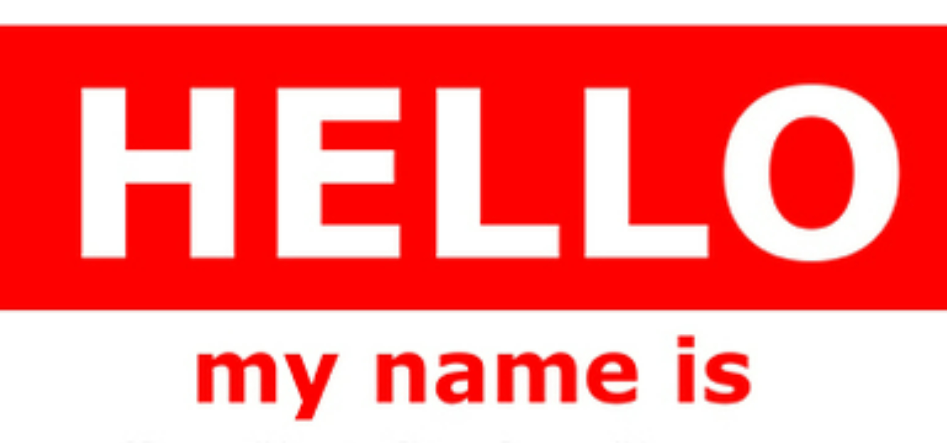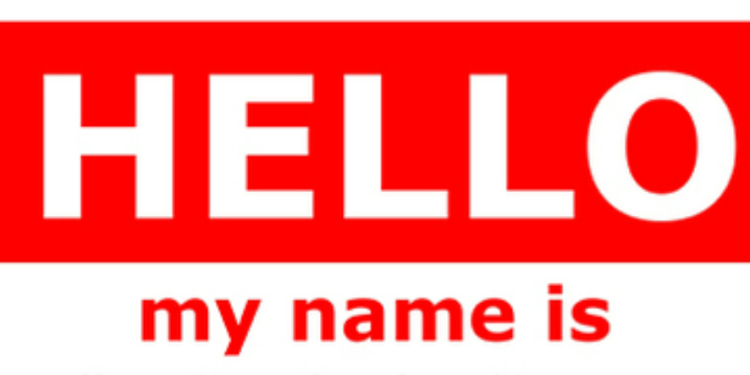
Even though Juliet’s famous question, “What’s in a name?” in William Shakespeare’s Romeo and Juliet may suggest the arbitrary nature of names and their separation from a person’s true qualities, the name a person bears reveals a great deal about them.
Based on history, influence, or reputation, names can function as padlocks, fence walls, or keys.
It is for this reason that, biblically, any time God calls a person to a new and higher assignment, a significant component of that process is a change of name. For instance, Abram became Abraham, Jacob’s name was changed to Israel, and the persecutor of the Church, Saul, became the Apostle Paul.
So what does your name represent?
— The Power Behind Identity
A name is not just a sound. It carries weight, intention, and influence. Whether inherited, earned, or given at birth, names can shape perception, define access, and even direct the course of one’s life.
Over time, some names gain symbolic power—not because of the syllables they’re made of, but because of the history, character, or legacy behind them.
When you hear certain names, you feel something. That’s not accidental. It’s because names can carry one of three powerful attributes:
1. Some Names Are Padlocks
A padlock is a device that serves to add further security to an entrance and limit access to a room, house or enclosure.
Padlock names carry a weight that limits, restricts, or binds. They are associated with failure, scandal, shame, or tragedy—locking people into a perception or cycle that is hard to break. Sometimes, the bearer of the name didn’t choose it or earn it, but history has attached stigma to it.
Examples abound locally and internationally.
A family name associated with betrayal or corruption in history can close doors for future generations. On the world stage, names like Al Capone, Adolf Hitler, or Jean-Bédel Bokassa of the Central African Republic are clothed with such ignominy that no one hardly ever names their children after them.
An organisation or tribe once involved in conflict may find its name associated with fear or distrust.
A person’s name, once involved in a public scandal, becomes a burden even long after the event.
Padlock names make it hard to move forward. They close hearts, minds, and sometimes opportunities. Reclaiming or redefining such a name takes intentional effort and transformation.
2. Some Names Are Fence Walls
A fence wall is a wooden, metallic or cement-based barrier around a property that encloses it, protects it and cuts off unauthorised access.
Fence wall names are protective names. They carry honour, legacy, or sacred history. They create a boundary—repelling attack, criticism, or dishonour. When spoken, such names command respect and serve as shields.
Examples in Africa include Kwame Nkrumah, Nelson Mandela, and Julius Nyerere.
A royal family name that has withstood the test of time and turbulence becomes a symbol of stability and strength.
A spiritual name tied to long-standing moral authority acts as a guard against slander. The Bible says in Philippians 2:10-11 that, “At the name of Jesus, every knee shall bow, of those in heaven and those on earth and those under the earth, and every tongue confess that Jesus Christ is Lord, to the glory of God the Father.”
A surname known for justice and integrity builds trust before a word is spoken.
Fence wall names guard reputations. They create safe space for the bearer to walk with dignity and security.
3. Some Names Are Keys
A key is a small piece of metal with incisions cut to fit the wards of a particular lock, which is inserted into a lock and turned to open or close it.
Key names open doors, attract favour, and initiate access. Through goodwill, excellence, or contribution, some names become passports—instantly unlocking rooms others struggle to enter.
The story is told of a lady who wondered what her civil servant father with limited means but good reputation was leaving his children after his demise. But she was profoundly surprised that when she mentioned her name at an interview, one of the panellists made a connection to her father and she got the job.
A name known for innovation and creativity will draw attention and collaboration.
A family name tied to philanthropy may lead to easier trust and acceptance.
A leader’s name associated with progress and empowerment will open hearts and platforms.
Key names do not just open physical doors; they open opportunities, relationships, and trust. These names often represent legacies of excellence, service, or courage.
What Does Your Name Represent?
Is your name a padlock, closing doors because of a past you didn’t choose?
Is it a fence wall, protecting and preserving your dignity?
Or is it a key, unlocking favour wherever it’s spoken?
Regardless of where your name currently stands, the good news is this: a name can be transformed. History can be rewritten. Legacies can be restored. Some have taken padlock names and turned them into keys through character, service, and endurance. Others have guarded their names like a fence wall, ensuring it remains untarnished.
In the end, your name is more than identity—it is your brand, your banner, and your message.
So again, ask yourself: What does your name represent?
Contrary to what Juliet’s query suggests in Shakespeare’s Romeo and Juliet, there really is something in a name; and your responsibility is to guard it with utmost care, jealousy, and intentionality.
DISCLAIMER: The Views, Comments, Opinions, Contributions and Statements made by Readers and Contributors on this platform do not necessarily represent the views or policy of Multimedia Group Limited.
DISCLAIMER: The Views, Comments, Opinions, Contributions and Statements made by Readers and Contributors on this platform do not necessarily represent the views or policy of Multimedia Group Limited.
- President Commissions 36.5 Million Dollars Hospital In The Tain District
- You Will Not Go Free For Killing An Hard Working MP – Akufo-Addo To MP’s Killer
- I Will Lead You To Victory – Ato Forson Assures NDC Supporters
Visit Our Social Media for More




